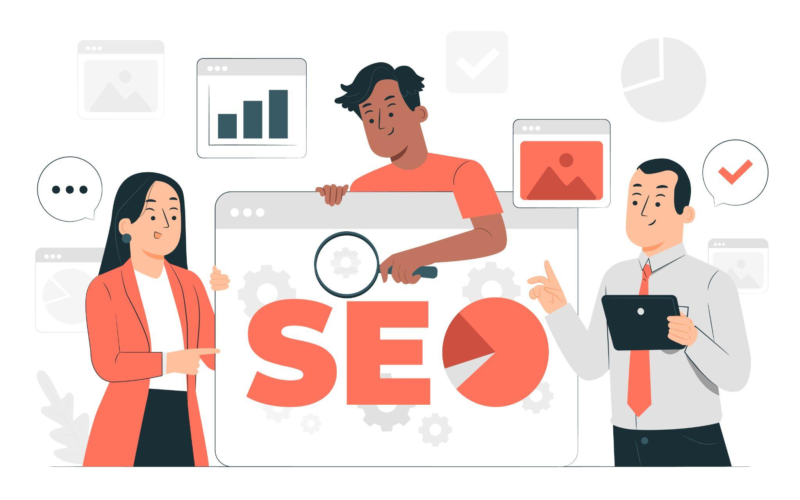
SEO is one of the winning strategies for you to index your website on Google and make it stand out in the crowd of competitors. Without it, your website won’t get traffic from the target audience, and you will miss out on sales opportunities. Don’t let that happen!
If you are a beginner in the online marketing world and have launched a new business website, you should rank it up the Google SERPs (Search Engine Result Pages). Let more and more people find your brand website and check out your services. Thus, it will increase the count of potential leads and business conversion rates.
But, being a new business, if you are in a constant dilemma of ‘how to index my website on Google?’, you have landed on the right page. Here, you will get some of the best tips and tricks to ensure your website ranks in Google search results and attain maximum traffic from the target audience.
1. Use Google Search Console to track the Crawl Status
When you have errors in your Google crawl status, ranking your website in the SERPs will be difficult. You are required to check the crawl status every one or two months to identify the possible errors that are affecting the overall marketing performance.
It should be the first step for your SEO implementation, without which all the other efforts will be useless. You must use the Google Search Console to check the crawl status under the index tab.
You might ask your SEO team, ‘Get Google to crawl my site’. But you also need to define the web pages that are worth crawling. Wrong web pages might affect the crawl status. So, tell the Google Search Console about which webpage you don’t want Google to crawl through, especially the ones with a 404 Error or the one that has been temporarily redirected.
2. The Webpages Should be Mobile-Friendly

When you hire the best digital marketing agency in Melbourne, you should make it clear to them to create mobile-friendly web pages. Around 58.99% of all the website traffic from all across the world comes from mobile phones. So, it is worth considering the fact that your SEO professionals should cater to this important attribute.
The mobile-first index is in trend, and optimising the web pages of your site will draw the attention of a wide-scale audience. You don’t want to lose website traffic because your web pages are absurdly loaded on smartphones.
You just have to get a few tweaks to your website, which will be mobile-optimised. Some of the important things that SEO experts will implement are:
- Insert a viewpoint metatag within the content of your website
- Implement a completely responsive website design
- Tag the pages with the use of AMP cache
- Compress & optimise the images and media content to improve the load times
- Reduce the overall size of the on-page UI components or elements
Test the website on mobile platforms and check the insights over Google PageSpeed. Determining the page speed will help you understand how fast search engines will crawl through your site.
3. Use the Relevant and High-Frequency Keywords

Among the best SEO tips and tricks, using the right keywords is the winning strategy of all. If you have the idea of using the right keyword, your content will get the right amount of traffic for the website.
The first step is to identify the right primary and secondary range of keywords that goes well with your brand’s services or products. Primary keywords should define the main focus of the website content. On the other hand, secondary keywords should act as supporting phrases to the main content topic.
Various tools are available online to search for the right set of keywords concerning your business or the collective industry. You can also hand over the job to the professionals, as they could filter out better the keywords with high-ranking potential.
4. Original Content is the Key
Your business website should keep attracting customers on repeat, and that is possible only when you convey practical and resourceful information about your product or services. And this should be done through original and comprehensive content. When you add original content, the audience will be related to your unique area of expertise in the designated field.
They will connect better with the brand! Moreover, the algorithms of search engines, especially Google, are designed to give crawling preference to websites with fresh and unique content. Websites that implement good SEO solutions and publish original and quality content will have better chances of getting indexed on the first page of Google search results.
5. Have a Look at the Page Title and the Meta Description
The page title and meta description are the primary things your target audience will encounter. All users decide to click or avoid the website, depending on how catchy your page titles and meta descriptions are. These are very few words, but it creates a great impact.
Irrespective of your web hosting platform, there will always be an easy tab for you to update your meta title and description. Be catchy while using the primary keywords in the title and description to make the website or content rank. But remember that your title should be within 30 to 60 characters, and the description should be less than 160.
The title and description should discuss the content and the information it will convey to the audience. It is one of the most important steps to adapt if you want answers to ‘how to index my website on Google?’.
6. Keep the URLs Short Yet Descriptive
The next thing you need to consider is the URL structure of your web page. It imposes a great impact on the on-page SEO and needs very little effort from your end. When you are implementing an organised URL, you are helping Google understand the page better. Thus, your web page’s user-friendliness will increase, which will help it rank higher in the SERPs.
You can consider using the target or primary keyword for an effective URL. When the users find your web page over Google results, the URL should help them understand what’s within the clickable link. Keep the length of URLs less than 60 characters, as Google won’t care to process the longer ones. Thus, you will be ranked lower.
7. Take Out Everything that is Making Your Website Slower
Don’t compromise on your page loading time at all! It directly impacts the user experience and will cost a lot of your SEO efforts. So, take out all unnecessary plugins, big media files and other such elements that are troubling the page speed insights. Run consistent tests to determine whether you have improved page loading time.
Conclusion
So, if you were looking for answers on, ‘how to index my website on Google?’, these are the six tips for achieving your desirable rank on the SERPs. Ensure you are disciplined about consistently implementing these SEO parameters to maintain your brand’s high-ranking reputation.
Irrespective of whether you are a new or established business, you should consider handing over the SEO job to professionals. Hire a reputed agency and let them look after the SEO parameters to help make Google index website and all of your dedicated web pages or content you add to it. Meanwhile, you can focus on enhancing the customer experience by working on other core business factors.





